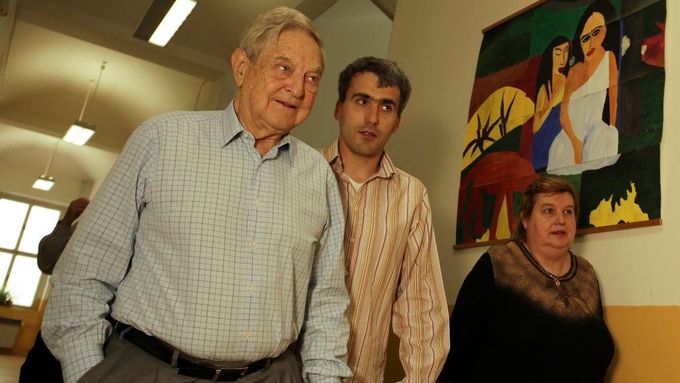Prague - George Soros visited the Czech Republic, a country where he spends EUR 100,000 every year on projects aimed at an inclusion of Roma children into the education process.
Goerge Soros is a Hungary-born US businessman best known for his speculation against the British pound in 1992, which earned him a fortune and a nickname "the man who broke the Bank of England." Recently, he is known for his philanthropic activities, mostly carried out within the framework of his Open Society Fund. Many of these projects are aimed at an inclusion of ethnic minorities such as Roma people.
During his visit in the Czech Republic, Mr Soros commented that from the point of view of inclusion of Roma people, Czech schools are "a relative heaven" if compared to Slovakia or Macedonia.
Read more: Severe sentences for racial arson attack on Roma family
Read more: Study: Czech Roma still segregated at school
However, when he met with Czech PM Petr Nečas on Monday 28 June, Mr Soros expressed his disappointment with "the current state of education of Roma children in the Czech Republic." Soros explained that the problem has been solved only in a small number of localities. "And this is in spite of the Czech Republic having financial resources, support from structural funds, capacities, and qualified people," he added.
During its one year of existence, the center-right government of Mr Nečas has been criticized, above all by NGOs, for not giving enough priority to the issue of human rights of Roma people.
NGOs also do not like the fact that Education Minister Josef Dobeš (Public Affairs), whose ministry is charged with the incorporation of Roma children into the education system, employs Ladislav Bátora as an adviser. A few years ago, Bátora run in elections for National Party, a minor far-right political party.
Soros pointed out to PM Nečas generally the same issues criticized by Czech NGOs.
„The Czech Republic was on the right track to deal with the problem of education of Roma children. Now, from apparently political reasons, and due to the public opinion and opinions of political parties, it goes to the opposite direction," Soros said.
